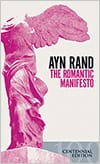Hi, Guest!

There are many special or “cross-filed” chains of abstractions (of interconnected concepts) in man’s mind. Cognitive abstractions are the fundamental chain, on which all the others depend. Such chains are mental integrations, serving a special purpose and formed accordingly by a special criterion. Cognitive abstractions are formed by the criterion of: what is essential? (epistemologically essential to distinguish one class of existents from all others). Normative abstractions are formed by the criterion of: what is good?

Consider the long conceptual chain that starts from simple, ostensive definitions and rises to higher and still higher concepts, forming a hierarchical structure of knowledge so complex that no electronic computer could approach it. It is by means of such chains that man has to acquire and retain his knowledge of reality.
Yet this is the simpler part of his psycho-epistemological task. There is another part which is still more complex.
The other part consists of applying his knowledge — i.e., evaluating the facts of reality, choosing his goals and guiding his actions accordingly. To do that, man needs another chain of concepts, derived from and dependent on the first, yet separate and, in a sense, more complex: a chain of normative abstractions.
While cognitive abstractions identify the facts of reality, normative abstractions evaluate the facts, thus prescribing a choice of values and a course of action. Cognitive abstractions deal with that which is; normative abstractions deal with that which ought to be (in the realms open to man’s choice).

The process of a child’s development consists of acquiring knowledge, which requires the development of his capacity to grasp and deal with an ever-widening range of abstractions. This involves the growth of two interrelated but different chains of abstractions, two hierarchical structures of concepts, which should be integrated, but seldom are: the cognitive and the normative. The first deals with knowledge of the facts of reality — the second, with the evaluation of these facts. The first forms the epistemological foundation of science — the second, of morality and of art.
In today’s culture, the development of a child’s cognitive abstractions is assisted to some minimal extent, even if ineptly, half-heartedly, with many hampering, crippling obstacles (such as anti-rational doctrines and influences which, today, are growing worse). But the development of a child’s normative abstractions is not merely left unaided, it is all but stifled and destroyed. The child whose valuing capacity survives the moral barbarism of his upbringing has to find his own way to preserve and develop his sense of values.